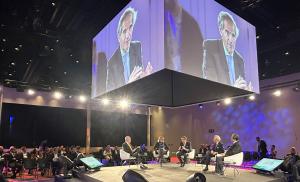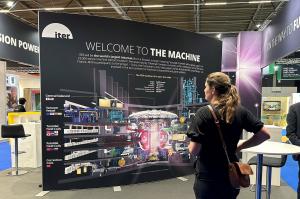Energy on centre stage

Fossil fuels certainly still played a dominant role at this "big show," as John Gorman, President and CEO of the Canadian Nuclear Association, put it. But times are changing. And so while big oil- and gas-producing countries still dominated the scene in the exhibition hall of Rotterdam's congress centre, the talks on the various stages were clearly oriented towards transformative technologies, new clean fuels, the potential of artificial intelligence and the role of nuclear energy in the future energy mix.

ITER itself did not have a speaking role at this edition of WEC, but fusion is definitely appearing on the radar of the energy sector. Not only was fusion's vast potential and the important role of the ITER Project for the development of the technology brought up by panelists in several sessions, the interest in the project was also very tangible at the ITER exhibition booth.
